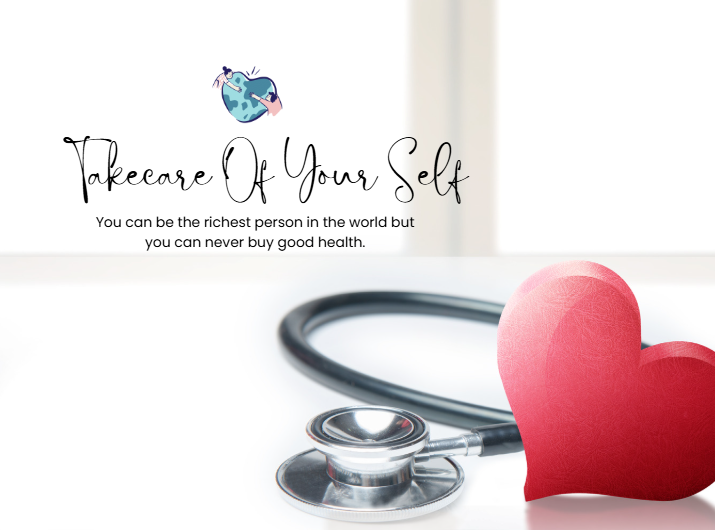
The Path to Better Health: Simple Yet Effective Ways to Prioritize Your Well-Being
In today’s fast-paced world, it’s easy to overlook our health. Between work, family, and daily responsibilities, our well-being often takes a backseat. But the truth is, good health is the foundation of everything—our happiness, productivity, and overall quality of life. By making small but meaningful changes, we can significantly improve our physical, mental, and emotional health.
1. The Importance of Health: Why We Should Care
Health isn’t just about the absence of illness; it’s a holistic approach that encompasses physical, mental, and emotional well-being. Without good health, it’s difficult to enjoy life fully, pursue our goals, or even manage everyday tasks.
Here’s why health should be a priority:
- Longevity: By taking care of our bodies and minds, we can improve our chances of living longer and maintaining a high quality of life well into our senior years.
- Better Quality of Life: Good health allows us to enjoy life’s pleasures—travel, socializing, sports, and hobbies—without the restrictions that come with poor health.
- Mental Clarity and Focus: A healthy body supports a healthy mind. When we’re physically fit, we’re better able to focus, think clearly, and manage stress.
- Reduced Risk of Diseases: A proactive approach to health helps prevent chronic conditions like heart disease, diabetes, and obesity. By staying active, eating well, and managing stress, we can reduce our risk of developing these illnesses.
2. Physical Health: Building a Strong Foundation
Physical health is the first pillar of overall well-being. A well-maintained body not only improves your energy levels but also enhances your ability to cope with stress, maintain a healthy weight, and prevent disease. Here are some key components to improving physical health:
- Exercise Regularly: Regular physical activity is one of the most important factors in maintaining good health. Aim for at least 150 minutes of moderate-intensity exercise each week, such as walking, cycling, or swimming. For even greater benefits, add strength training exercises at least two days a week. Exercise improves cardiovascular health, strengthens muscles, and boosts mental health by releasing endorphins.
- Balanced Diet: Nutrition plays a crucial role in health. Eating a well-rounded diet filled with fresh fruits, vegetables, lean proteins, whole grains, and healthy fats supports the body’s immune system, energy levels, and metabolism. Limit processed foods, added sugars, and excessive salt, which can contribute to chronic diseases.
- Hydration: Water is essential for nearly every bodily function, from digestion to regulating body temperature. Aim to drink at least 8 glasses of water a day, more if you’re exercising or in hot weather. Proper hydration keeps your skin healthy, aids in digestion, and helps maintain energy levels throughout the day.
- Sleep Well: Sleep is often overlooked, but it’s crucial for recovery and overall health. Aim for 7-9 hours of quality sleep per night to allow your body to repair and restore itself. Poor sleep is linked to a variety of health issues, including weakened immunity, poor mental health, and increased risk of chronic diseases.
3. Mental and Emotional Health: Nurturing Your Mind
Mental health is just as important as physical health. It affects how we think, feel, and act, and plays a significant role in our relationships, decision-making, and overall happiness. Here’s how you can take care of your mental and emotional well-being:
- Manage Stress: Chronic stress can negatively impact your health, leading to issues such as anxiety, depression, and even physical ailments like high blood pressure. Find healthy ways to manage stress, such as practicing mindfulness, deep breathing exercises, or engaging in hobbies you enjoy.
- Stay Connected: Social connections are vital for mental well-being. Spend quality time with family, friends, and loved ones. Having a strong support network helps reduce feelings of loneliness and provides emotional comfort during difficult times.
- Engage in Positive Thinking: Your mindset plays a significant role in your emotional health. Practicing gratitude, focusing on positive aspects of life, and setting achievable goals can improve your mood and boost resilience.
